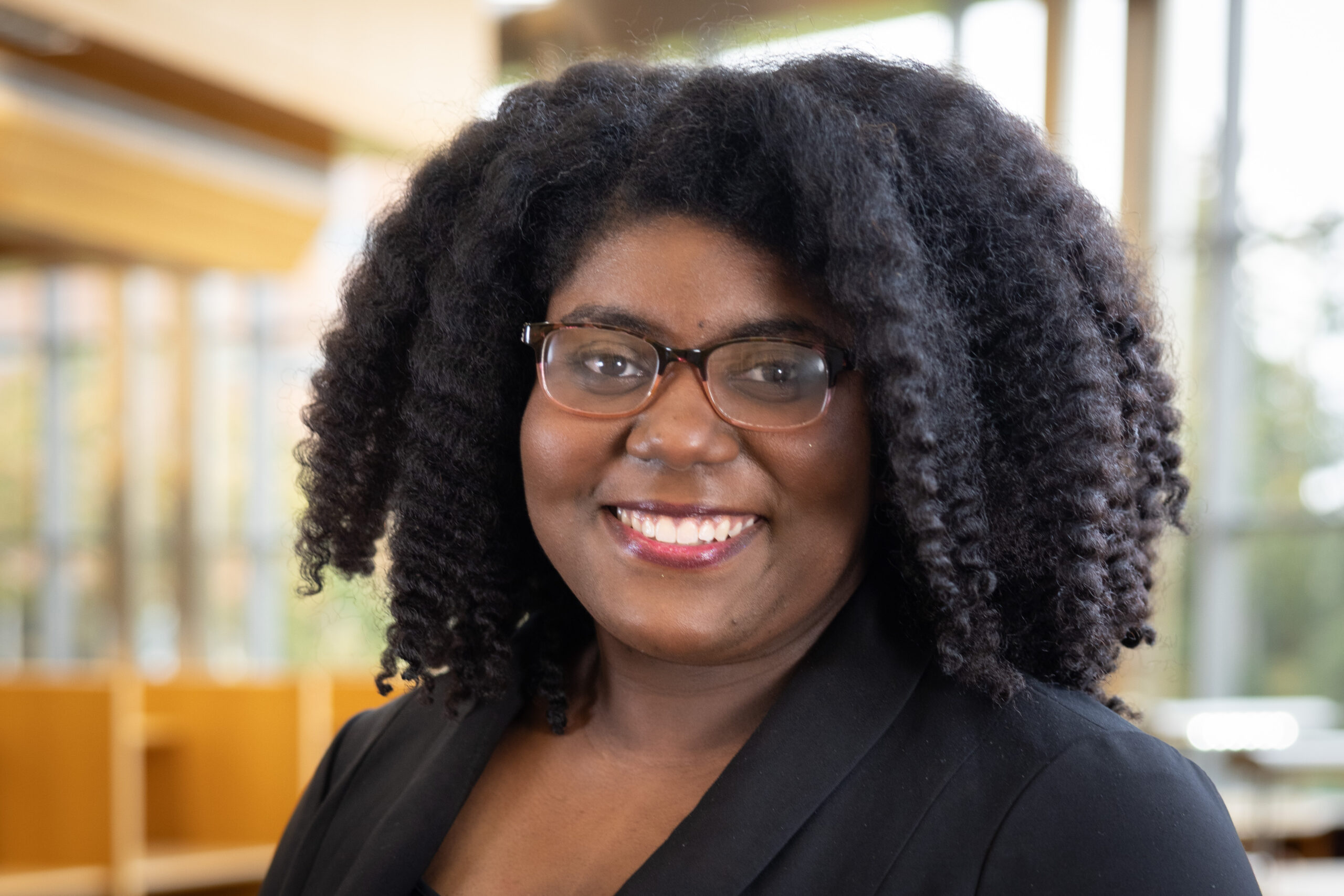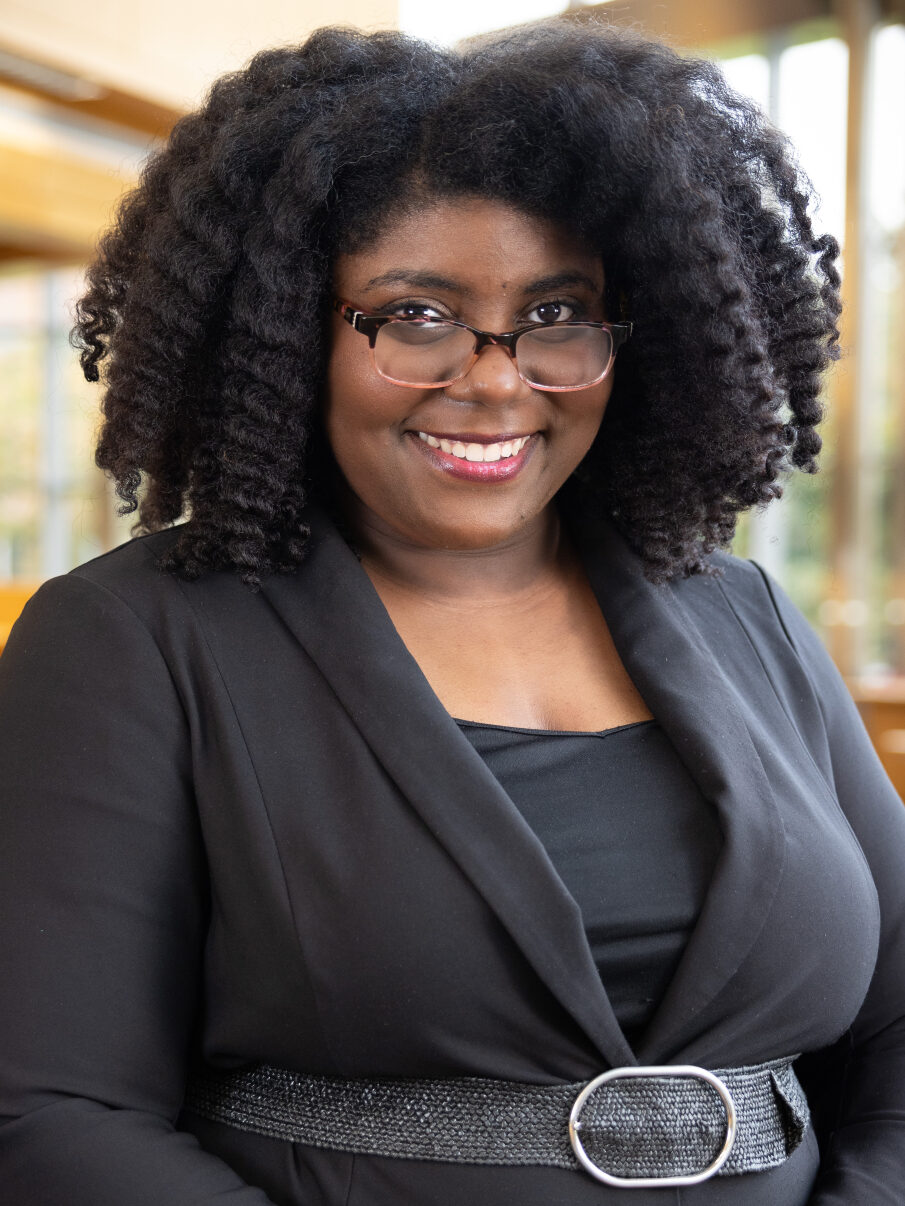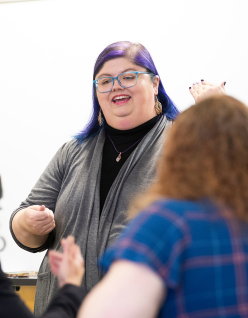UM-Flint's Moot Court program prepares future legal scholars

There's no question that learning the legal discipline is an enormous challenge, but it's one that the University of Michigan-Flint's Moot Court program is ready to help its members meet. Participants are given mock trial problems and showcase their written and oral advocacy skills to a panel of judges by defending both sides of two distinct legal issues.
During a Moot Court meeting earlier this month, it was announced that the program will be expanding to a year-round format, allowing for intramural competitions and workshops for various verbal and written skills.

"I got into moot court by accident," said Alyssia Washington, a senior political science major from Flint and Moot Court team captain. "I suffered severe nerve damage because of COVID-19. For a while, I couldn't speak or read, and I had to walk around campus with a walker. When I started doing moot court, it was a way to challenge myself to heal and rehabilitate. It was an amazing confidence boost for me, and helped me regain my confidence after being sick."
In addition to being Moot Court team captain, Washington also serves as Student Government's director of government and legal affairs and an orientation leader with the Student Success Center. For undergraduates, the Moot Court program operates under the American Moot Court Association, which administers competitions related to legal advocacy and research. Participants, in teams of two, must familiarize themselves with the details of mock case problems and defend both sides of their argument to a panel of judges.

"These problems are inspired by real, ongoing cases that are moving upwards toward the Supreme Court level," said Kim Saks, assistant professor of political science and pre-law advisor. "These cases usually involve constitutional interpretation, and they try to keep the facts and topics relevant to problems going on in the world right now." For 2024-25, case problems focus on First Amendment rights and data privacy.
"We've had participants from a variety of majors and minors, including people with no interest in attending law school," said Saks. "Everyone does Moot Court for a unique reason, some do it for public speaking or analysis experience, while others do it for fun. Each participant brings a different set of analytical skills to the table, and being able to condense an argument is an extremely good skill to have."
"Kim has been a hero to me," said Washington. "She reminded me that I deserve to have my voice heard and that I need to believe in myself. With her encouragement, I was able to regain my abilities, and within the year I was able to walk unassisted. Kim believed in me, and I was able to succeed." Washington went on to become the university's top-ranked Moot Court participant in 2022 and hopes that the program can make it to the national competition level in the future.
While the current teams are hard at work reviewing real-life legal documents, they are also developing skills like public speaking, professionalism, argumentative writing and critical thinking. While many of the participants wish to pursue a career in law, these same skills have been invaluable for many other academic and professional activities.
"There's a lot of misinformation out there," Washington said. "These skills help you with being able to discern what's real and what isn't. It makes you more inquisitive, it makes you more curious, it makes you want to learn more about what is important to you and it can help you be a more politically informed citizen."
The program has grown in 2024, with 13 students and six teams preparing to present their current progress in class scrimmages. Since 2019, five UM-Flint teams have qualified for playoffs in the Great Lakes region and have won multiple awards for exceptional oration and written advocacy. Washington, co-captain Molly Edinger, and returnee Sami Kotob all look forward to the program growing even more as they move to year-round operations, in addition to the program offering law exploration camps for local high school students.
Washington hopes to use her research and legal advocacy skills to pursue a career in foreign and administrative policy. Her passion for uplifting others reflects the challenges that Moot Court was able to help her overcome.
"Ultimately, it's a conversation with the judges," said Washington. "Even if the people in these cases are fictional, something happened to them. I want you to know and feel what the case is about, and what happened to these people. Their rights are worth defending even if they aren't real, and I want people to know that these issues can happen in real life."
To learn more about how to get involved in moot court, visit the pre-law webpage.
Related Posts
No related photos.
- Career Development
- College of Arts, Sciences & Education
- Communication Studies
- Criminal Justice
- Educational Opportunity Initiatives
- English
- Learning By Doing
- Political Science
- Social Work
- Student Life
- University Events
- University News
Tobias Kind
Toby Kind is the media relations assistant for the Office of Marketing and Communications. He can be reached at tobykind@umich.edu.